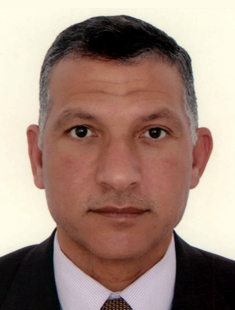Abstract
Despite cancer-targeting therapy has been approved for breast cancer (BC) and has shown a relative success, drug resistance still the major challenge in the management of the disease at advanced stages. HER2/neu oncogene is correlated with poor prognosis and associated with brain metastasis in HER2+ BC patients. Lapatinib efficiently targets this oncogene; however, HER2+ BC is highly aggressive and eventually relapses. Thus, new treatment strategies for targeting HER2+ BC are urgently needed. In this study, the resistance of the HER2+ BC was addressed at ATP (orthosteric) binding site through multiple approaches. First, by inserting flexible residues at position 6 of the quinazoline nucleus of HER2 inhibitor to eliminate the steric clashes with the mutant gatekeeper HERT798I. Second, by introducing terminal bulky cycloalkyl urea at position 4 to inactivate HER2 through displacing out its -C-helix. Third, by embedding electrophilic moieties at position 6 to interact irreversibly with C805 to avoid resistance by efflux mechanism. An additional innovative approach is conducted to map the allosteric binding sites of HER2T798I mutant kinase. Then, virtually screen these sites to discover new allosteric modulators (AMs) with higher selectivity and lower toxicity compared to the orthosteric ligands. These innovative approaches are supported by computer-aided drug design tools and by sets of in vitro and in vivo screening using HER2+ expressing BC cell lines and their lapatinib resistant clones. The in vivo study was conducted using athymic nude mice and lapatinib-resistant BT474 (HER2+) xenograft mouse model. This study will have a significant impact to improve the overall survival and benefit most American women who are suffering from BC. The financial costs (18.9 billion) of BC care will be significantly reduced by funding this type of research, which will speak very high specifically in medically underserved areas in South Texas.
Speaker Bio
Currently, I am an Assistant Professor (Tenure Track) within 2 years (2013-2015). At Texas A&M Rangel College of Pharmacy (RCOP) I got “Teacher of the Year” in 2017 and “Teaching Team of the Year” for 7 consecutive years (from 2014 to 2020) Then, received the “Texas A&M University-Distinguished Achievement Award” in 2019, given to the outstanding faculty members. I have built a successful scholarly activity that has attracted substantial extramural/intramural funding supports worth $3.1 Million (as a PI, CO-I, and Consultant) in the United States and the Middle East. Through these funded research projects, I have significantly mentored many undergraduate, graduate, and professional Pharm-D students exposing them to meritorious research opportunities in my lab. Through this journey, I have published more than 50 peer-reviewed articles and served as ad hoc grants/journals reviewer for several national and international institutions and served as an active member in several scientific associations.
